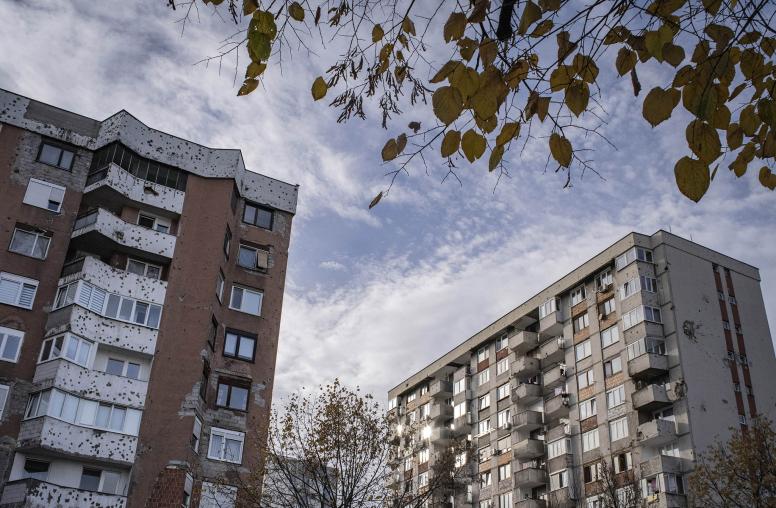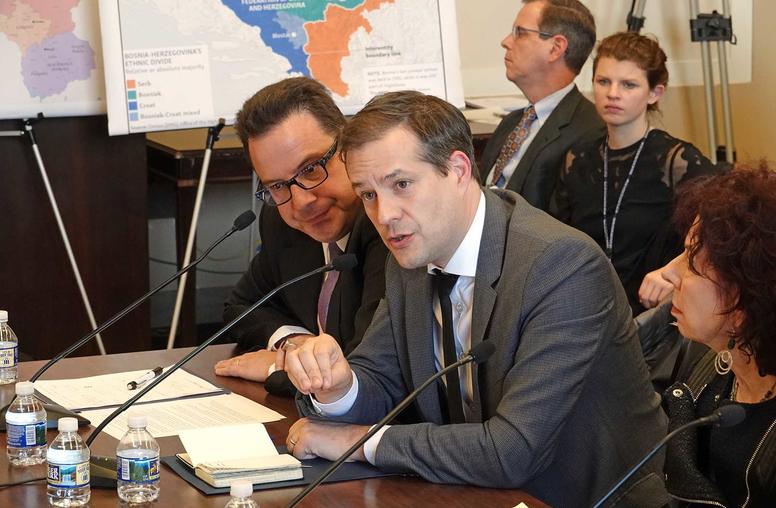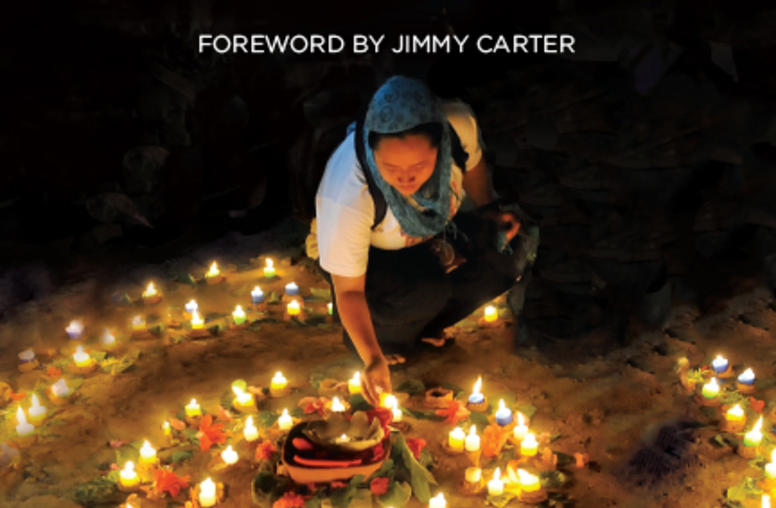Time for Action in the Western Balkans
Policy Prescriptions for American Diplomacy
The Western Balkans—Bosnia-Herzegovina, Macedonia, Kosovo, Montenegro, Albania, and Serbia—are re-emerging as a region of stagnation and instability due to poor governance, the influence of outside forces and tense relations between ethnic groups and neighboring states. A forthcoming report by the National Committee on American Foreign Policy and the EastWest Institute highlights the need for immediate, decisive action by the U.S. and the European Union to head off instability and possible violent strife.
The U.S. Institute of Peace hosted the authors of the report—all veterans of U.S. diplomacy in the Balkans and Europe—as they present a strategy for the United States and Europe, working in a revitalized partnership, to forestall a downward spiral in the Western Balkans, which could potentially lead to fractured states and widespread instability on Europe’s borders. Review the conversation on Twitter with #BalkansActionUSIP.
Speakers
Amb. Sarah Mendelson, Moderator
Distinguished Service Professor of Public Policy and Head of Heinz College in Washington, D.C., Carnegie Mellon University, and former U.S. Representative to the Economic and Social Council at the United Nations
Amb. Frank G. Wisner
International Affairs Advisor, Squire Patton Boggs and former U.S. ambassador to Zambia, Egypt, the Philippines and India
Jonathan Levitsky
Partner, Debevoise & Plimpton, and former Counselor to Ambassador Richard C. Holbrooke at the U.S. Mission to the United Nations
Amb. Cameron Munter
CEO and President, The EastWest Institute and former U.S. Ambassador to Serbia and Pakistan
Tom Graham
Senior Fellow and Managing Director, Kissinger Associates, Inc.



